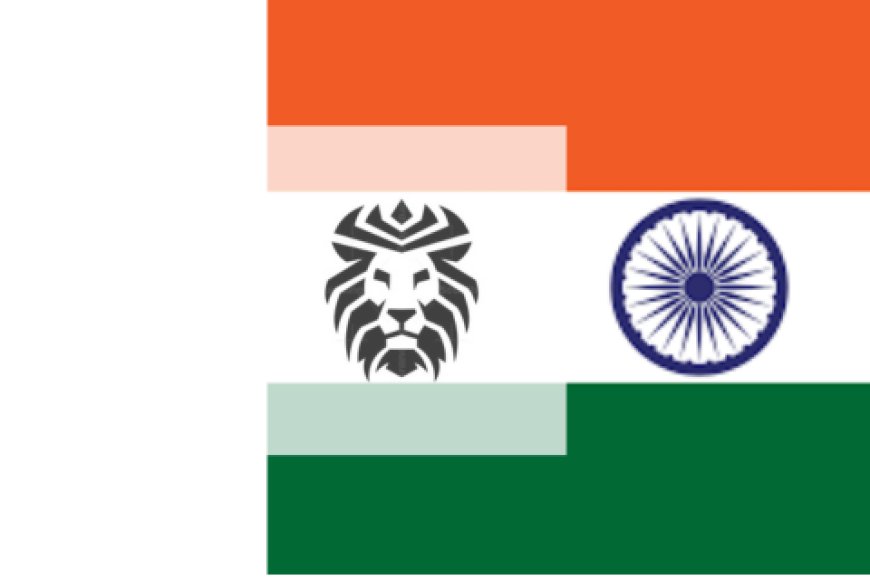The Libertarian Party of India: A New Path for Indian Politics
Explore the Libertarian Party of India and its mission to bring individual freedom, limited government, and free markets to India’s political landscape. Discover its core values and the vision for a prosperous, free India.


In the rapidly changing political environment of India, new ideas are emerging, challenging traditional notions of governance. One such idea gaining traction is the philosophy of Libertarianism, which advocates for maximum individual freedom, limited government intervention, and a free-market economy. At the forefront of this movement in India is the Libertarian Party of India (LPI), which aims to offer an alternative to the existing political landscape by promoting personal liberty and economic freedom.
Founding of the Libertarian Party of India
The Libertarian Party of India was established with the mission of promoting libertarian values in Indian society and politics. Founded by a group of passionate individuals who believed in the core principles of individual liberty, free markets, and minimal government, the LPI stands as a distinct voice in the Indian political system. The party seeks to challenge the centralized, often interventionist role of the state in the lives of its citizens, advocating for a political environment where the rights of individuals are paramount.
Core Principles of the Libertarian Party of India
The Libertarian Party of India is built on a foundation of freedom, responsibility, and choice. Here are the key principles that guide the party's ideology:
-
Individual Freedom
At the heart of libertarianism is the belief that individual freedom is the most important value in a society. The party advocates for the protection of personal rights, including the right to free speech, freedom of thought, freedom of association, and the right to own and control property. In their vision, individuals should have the autonomy to make decisions about their lives, free from unnecessary state interference. -
Limited Government
A central tenet of the party is that the government’s role should be minimized. Instead of a large, sprawling bureaucracy that regulates every aspect of citizens’ lives, the Libertarian Party of India advocates for a government that exists to protect rights, enforce the rule of law, and maintain national security—and nothing more. The state should refrain from interfering in matters like education, healthcare, and personal economic choices. -
Free Markets
The LPI believes in the power of free markets to drive innovation and prosperity. It advocates for reducing regulatory burdens, eliminating protectionist policies, and encouraging competition. By removing barriers to trade and entrepreneurship, the party seeks to unlock the potential of India’s economy and foster an environment where businesses can thrive and create jobs. -
Civil Liberties and Human Rights
The Libertarian Party of India emphasizes the importance of civil liberties and human rights. They believe that a society that respects the rights of individuals is essential for long-term social harmony and progress. The party supports a legal framework that protects the rights of minorities, advocates for gender equality, and ensures that people can live their lives without fear of government overreach.
Libertarianism in the Indian Context

While libertarianism is often seen as a Western philosophy, its relevance in the Indian context cannot be understated. India, with its diverse population and complex socio-political landscape, can greatly benefit from the principles of freedom and economic liberalization that libertarianism offers.
India has historically struggled with heavy government regulation, high taxes, and limited competition. The Libertarian Party of India envisions a society where individual choice and entrepreneurial spirit drive the economy. The party believes that by creating a more competitive environment, India can reduce poverty, improve living standards, and ensure greater opportunities for all citizens.
Key Issues and Policies

The Libertarian Party of India is not just an ideological movement; it has clear policy proposals that aim to address the pressing challenges facing the country. Some of the key policy areas include:
-
Taxation and Economic Freedom
The LPI advocates for a simplified tax structure, with lower tax rates and fewer exemptions. They support the idea of tax cuts for both individuals and businesses, believing that people should be able to keep more of what they earn and spend it how they see fit. -
Decentralization of Power
The party calls for the decentralization of power to local governments and communities, enabling citizens to have more control over their own affairs. By reducing the power of the central government, the LPI believes that governance will become more efficient and responsive to the needs of the people. -
Education and Healthcare
Rather than government-run programs, the Libertarian Party advocates for privatization and competition in education and healthcare. They argue that giving individuals and families the freedom to choose their own healthcare providers and schools will lead to better services and lower costs. -
Foreign Policy and Defense
The party supports a non-interventionist foreign policy, focusing on peace and cooperation with other nations while maintaining a strong defense to protect India’s sovereignty. They believe that India’s foreign policy should prioritize trade and diplomacy, rather than military intervention.
The Future of the Libertarian Party of India

The Libertarian Party of India is still in its nascent stages, and its reach is expanding slowly. However, with India’s growing youth population and the increasing demand for freedom and economic opportunity, the party is beginning to resonate with a new generation of voters.
The rise of digital platforms and social media has also allowed the party to reach a wider audience, particularly among young professionals and entrepreneurs who are looking for an alternative to traditional politics. With India’s political environment evolving rapidly, the Libertarian Party has the potential to shape future debates and offer a fresh perspective on governance.
Challenges Ahead
Despite its compelling vision, the Libertarian Party of India faces significant challenges in a country with a deeply rooted history of state intervention. Convincing voters who have long relied on state support may take time, as will winning the support of established political parties. Additionally, the party will need to navigate complex issues like poverty, inequality, and social welfare, balancing its libertarian ideals with the realities of a developing nation.
Conclusion
The Libertarian Party of India presents a unique vision for the country’s future—one where individual freedoms, economic opportunity, and a minimal government play central roles. Whether it can successfully influence the political landscape will depend on how effectively it can communicate its principles and gain support from the masses. However, the growing conversation around personal liberty, economic freedom, and government accountability shows that its ideas have the potential to shape the direction of India’s political future.
As India moves forward into an era of globalization and economic transformation, the Libertarian Party of India offers an alternative that prioritizes freedom, responsibility, and choice.
What's Your Reaction?


















































